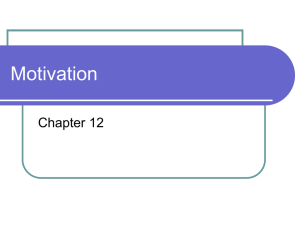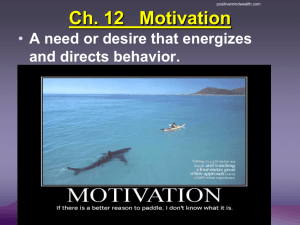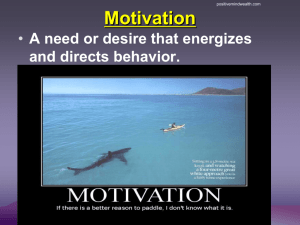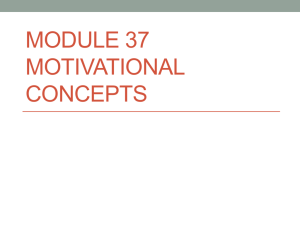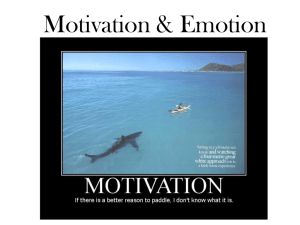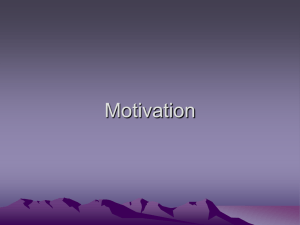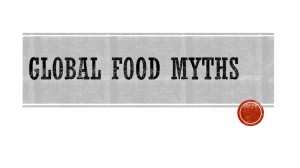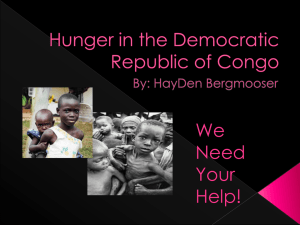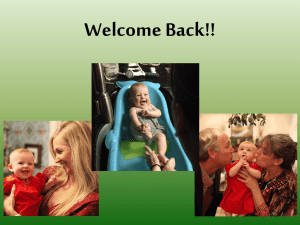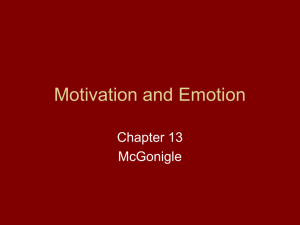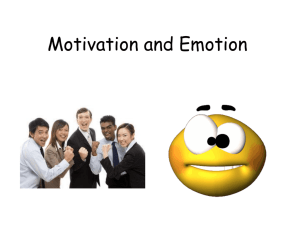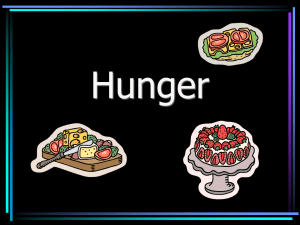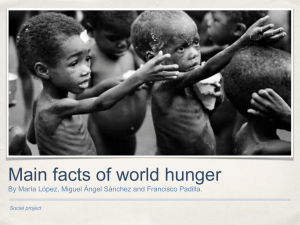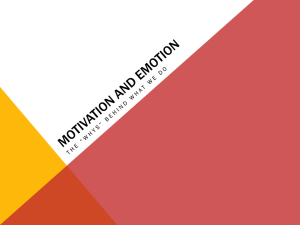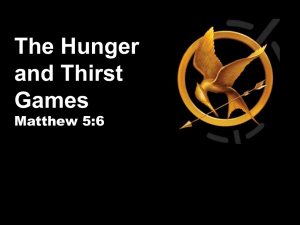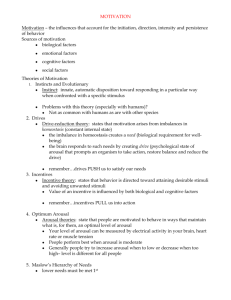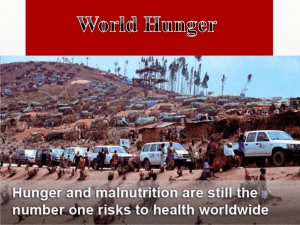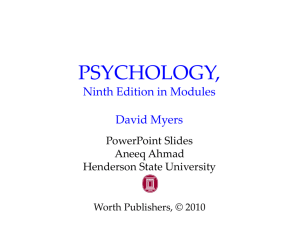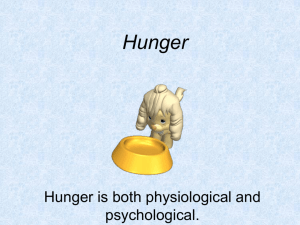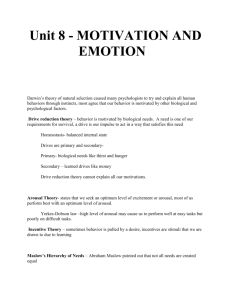Motivation and Emotion
advertisement
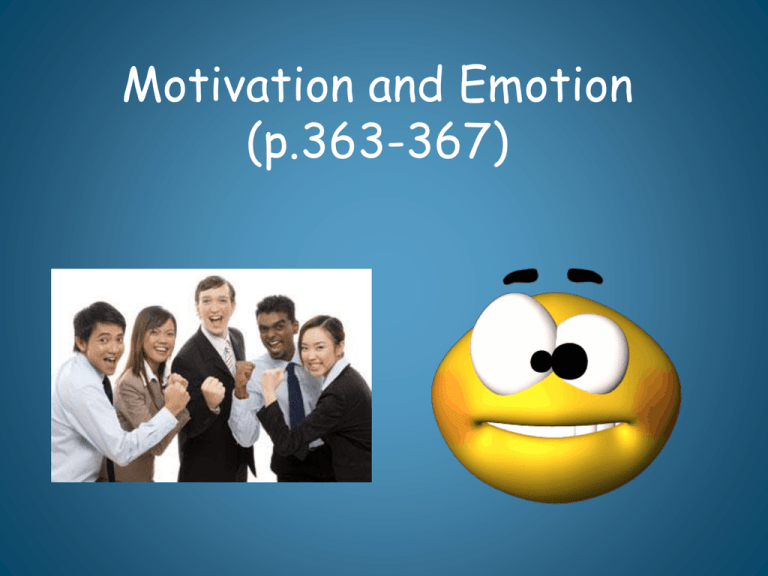
Motivation and Emotion (p.363-367) Motivation • Need or desire that energizes and directs behavior • Instinct Theory: we are motivated by our inborn automated behaviors. • But instincts only explain why we do a small fraction of our behaviors. Click on the fish to watch it’s instinctual behavior. Drive Reduction Theory • Our behavior is motivated by BIOLOGICAL NEEDS. • Wants to maintain homeostasis. • When we are not, we have a need that creates a drive. • Primary versus Secondary drives • Homeostasis: Tendency to maintain a constant internal state Example: Brrrr it’s cold…where is my coat? • Incentive: +/environmental stimulus that motivates behavior Arousal Theory • We are motivated to seek an optimum level of arousal. • Yerkes-Dodson Law Maslow’s Hierarchy of Needs • Abraham Maslow said we are motivated by needs, and all needs are not created equal. • We are driven to satisfy the lower level needs first. Quiz question #1 • Which theory would be most helpful for explaining why people are motivated to watch horror movies? a. Instinct theory b. Drive-reduction theory c. Incentive theory d. Arousal theory Quiz question 2 • According to Maslow, our need for _____ must be met before we are prompted to satisfy our need for _____. a. food; love b. Self-esteem; adequate clothing c. Self-actualization; economic security d. Political freedom; adequate housing Motivation of HUNGER (p.368-373) Hunger Hunger is both physiological and psychological. Body Chemistry • Glucose • The hormone insulin converts glucose to fat. • When glucose levels drop- hunger increases. Biological Basis of Hunger • Hunger does NOT come from our stomach. It comes from our… • Brain What part of the brain? • The Hypothalamus Hypothalamus Lateral Hypothalamus • When stimulated it makes you hungry. • When lesioned (destroyed) you will never be hungry again. Ventromedial Hypothalamus • When stimulated you feel full. • When lesioned you will never feel full again. Set Point Theory • The hypothalamus acts like a thermostat. • Wants to maintain a stable weight. • Activate the lateral when you diet and activate the ventromedial when you start to gain weight. • Leptin theory Metabolic Rate • The body’s base rate of energy expenditure Example: Holocaust victims stabilized their bodies at ¾ of their normal weight by reducing their energy expenditure. Taste Preferences Food taste better and we chew less when we are hungry (beginning of a meal). Food tastes worse and we chew more when we are not hungry (at the end of the meal). Its weird, the better the food tastes, the less time we leave it in our mouths. Culture and Hunger Dog Mice Wine Fried Frog Legs Criadillas- bull testicles. Psychological Aspects of Hunger • Internals versus Externals • The Garcia Effect Anorexia Nervosa • Starve themselves to below 85% of their normal body weight. • See themselves as fat. • Vast majority are woman. Click on the woman to watch a case study of an anorexic. Eating Disorders Bulimia Nervosa • Characterized by binging (eating large amounts of food) and purging (getting rid of the food). Obesity • Severely overweight to the point where it causes health issues. • Mostly eating habits but some people are predisposed towards obesity. Click on the pictures to see some case studies on obesity. Quiz question • When an organism’s weight falls below its set point, the organism is likely to experience a(n) ________ in hunger and a(n) ________ in its metabolic rate. a. Increase; increase b. Decrease; decrease c. Increase; decrease d. Decrease; increase
